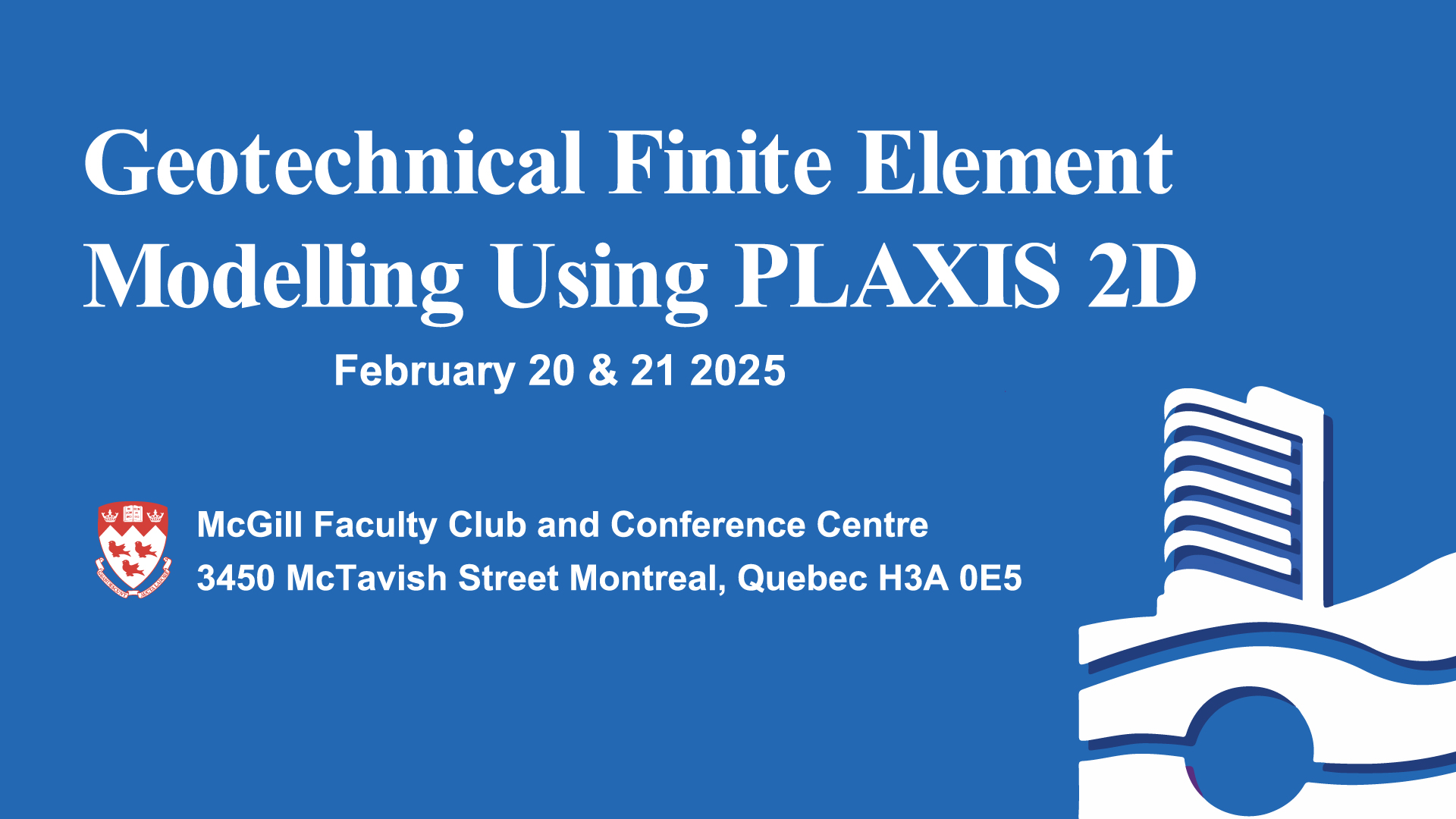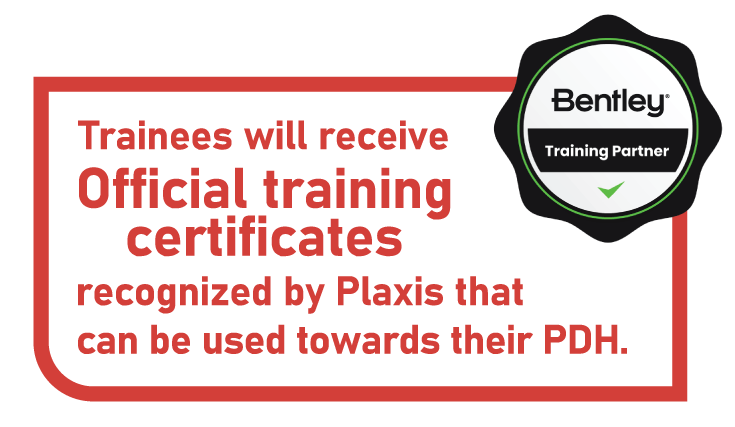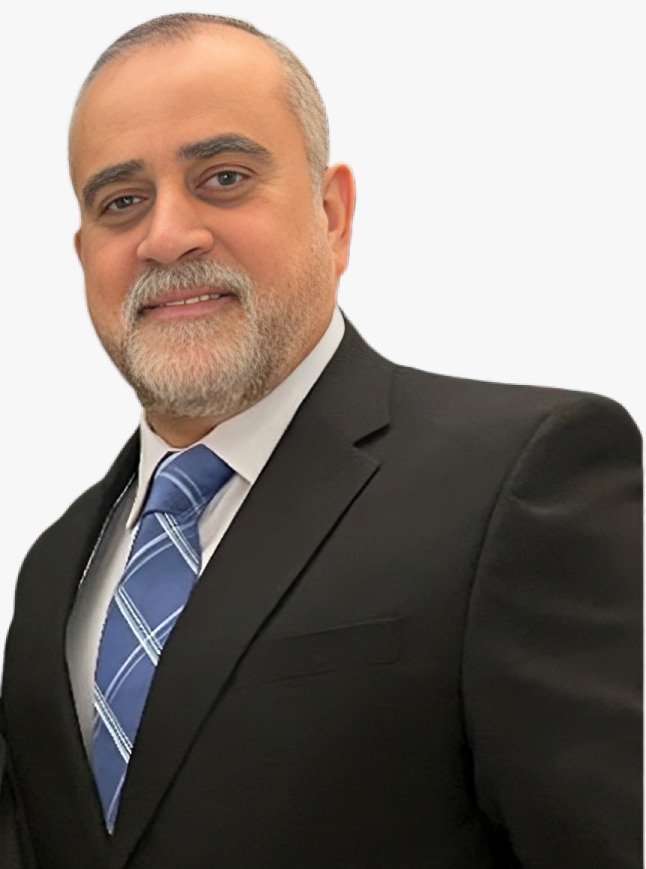
INTRODUCTION

Finite element modelling is a cornerstone of geotechnical design and research, providing invaluable insights into complex engineering challenges. A wide range of specialized software packages are available for geotechnical applications. This workshop focuses on foundational principles of finite element modelling, with an emphasis on practical, real-world scenarios.
This comprehensive two-day training course is designed to help you understand the underlying mechanics of finite element modelling, enabling you to apply this knowledge across multiple platforms. To enhance the learning experience, hands-on exercises will be conducted using PLAXIS 2D, one of the most widely used and trusted software solutions in geotechnical engineering. Expand your expertise and gain the skills needed to excel in geotechnical design and analysis.

OBJECTIVES
This course will:
- Equip participants with a strong understanding of the fundamental theories and methodologies behind finite element modelling.
- Provide insights into constitutive models, their principles, functionality, and how to select the most appropriate ones for specific analyses.
- Enable participants to:
- Model different foundations and evaluate their response to different loading systems,
- Analyze anchored deep excavations, and
- Assess slope stability
The course philosophy is to provide participants with cutting-edge tools and knowledge to design geotechnical structures using state-of-the-art methodologies.
What will the course cover?
- Basic principles of finite element modelling
- The use of finite element modelling in geotechnical engineering
- Introduction to PLAXIS
- Using structural elements
- Initial stress generation
- Modelling pore pressures
- Undrained soil behaviour
- Elasticity and Plasticity
- Meshing and modelling strategies
- Constitutive models: Mohr-Coulomb and Hardening Soil models, parameters, and usage
- Foundation Design and applications to excavation problems
- Embankment design and slope stability using PLAXIS
WHO SHOULD ATTEND
Structural, civil and geotechnical engineers, consulting engineers, professionals in public works and construction departments, provincial and other engineers managing civil or geotechnical infrastructure.
SPECIAL FEATURES
This dynamic two-day program combines a series of lectures and workshops. Practical examples and numerical references reinforce the lecture content, while case studies highlight the range of challenges encountered in practice. Participants will also benefit from a comprehensive finite element modelling workshop, conducted under the instructors’ guidance.
INSTRUCTORS:

Dr. Hany El Naggar is a Professor of GeoStructural Engineering at Dalhousie University with more than 25 years of experience in civil construction, geotechnical and structural engineering, and consulting in Canada and overseas. Specializing in resilient infrastructure, Dr. El Naggar and his team designed several foundation systems ranging from machine foundations subjected to dynamic loads to raft foundations for underground structures and several sewer systems, water distribution networks, energy systems, bridges, and transportation tunnels in Canada, Europe, the Middle East, and the United States. In 2024, Dr. El Naggar received the prestigious G. Geoffrey Meyerhof Award from the Canadian Geotechnical Society, recognizing his exceptional contributions to soil mechanics and foundation engineering. His pioneering research on the seismic performance of corrugated steel plate culverts led to critical revisions in the seismic provisions of the Canadian Highway Bridge Design Code (CHBDC, 2019),enhancing the safety and resilience of infrastructure across Canada. Additionally, Dr. El Naggar introduced an improved pile design procedure in the 5th edition of the Canadian Foundation Engineering Manual (CFEM, 2023), improving consistency in pile capacity calculations.
Renowned for his expertise in modelling buried concrete structures, Dr. El Naggar’s contributions have shaped best practices in infrastructure durability and resilience. Through his innovative research and leadership, he has advanced engineering standards, codes, and practices, leaving a lasting impact on both academia and the engineering industry.

Dr. Meguid, P.Eng., holds a Ph.D. from Western University and is a Professor of Civil Engineering at McGill University, where he teaches courses in Advanced Soil Mechanics and Computational Geomechanics. With over 30 years of experience applying the finite element method in geotechnics, Dr. Meguid has led numerous projects involving buried structures, reinforced slopes, and earth dams. He has also taught several well-attended short courses at McGill, training industry engineers from the Montreal region in using finite element analysis to address geotechnical engineering challenges. A recognized authority in the field, his research has directly influenced design guides and tools used across the industry. An award-winning instructor, Dr. Meguid remains dedicated to advancing geotechnical engineering education and practice.
For more information contact:
engineering.training@ecelimited.ca
The Fees below includes 15% HST
